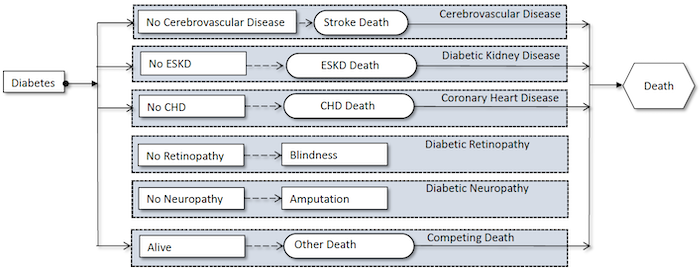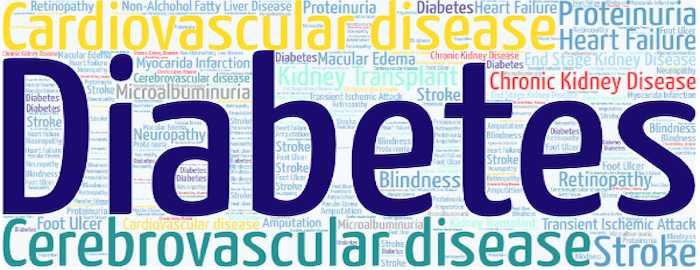About the Group
The Michigan Diabetes Modelling Group focuses on developing diabetes microsimulation models, with the aim of improving the understanding and management of diabetes.
Our models are used to simulate the progression of diabetes and diabetes over time, its complications (retinopathy, neuropathy and nephropathy), and its major comorbidities (cardiovascular and cerebrovascular disease), and death.
These models also estimate the medical costs of diabetes and its comorbidities, as well as the quality of life related to the current health state of the simulated subjects. These models take into account factors such as age, sex, BMI, HbA1c, lipids, lifestyle, and medical history to create a personalized simulation for each individual.
By using these models, researchers can test different interventions and treatment strategies to determine the most effective approach for preventing or managing diabetes. We are also working on extending these models to develop tools that can aid clinical trial design and optimization. Ultimately, the goal of this research group is to improve diabetes prevention, diagnosis, and treatment, and to reduce the burden of this disease on individuals and society as a whole.
We are keen to facilitate model transparency, reproducibility, and shareability, by sharing our model and code with GPL license with the diabetes health economic research community.


